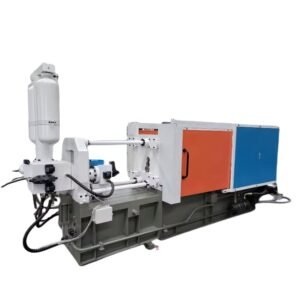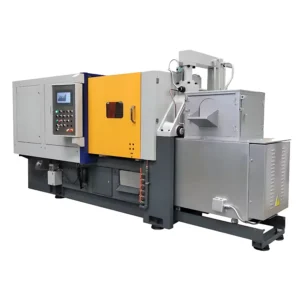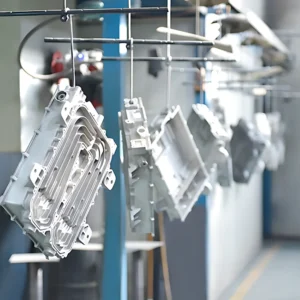CNC machining, or computer numerical control machining, has revolutionized the manufacturing industry by automating precision tasks. Understanding the advantages and disadvantages of CNC machining allows you to make the right decision before production.
The importance of CNC machining in modern manufacturing cannot be overstated. The global CNC machine market was valued at approximately $93.5 billion in 2023 and is expected to reach $136.05 billion by 2028, growing at a compound annual growth rate (CAGR) of 7.79%. This growth highlights the importance of understanding the advantages and limitations of CNC machining.
read more:The Future of CNC Machining: Trends to Watch in 2025

Benefits of CNC Machining
Consistent Quality
CNC machining excels in providing consistent quality. Computer-controlled systems ensure that each part meets precise specifications. This level of precision eliminates human error, which often plagues traditional machining methods. Automation enables repeatable results, making it ideal for mass production. Manufacturers can rely on CNC machines to produce the same parts every time.
Tight Tolerances
CNC machining offers tight tolerances that are difficult to achieve with manual methods. The technology supports high-precision operations, allowing for complex designs and intricate geometries. This capability makes CNC machining suitable for industries that require tight dimensional accuracy, such as the aerospace and medical sectors. Tight tolerances ensure that parts fit perfectly, reducing the need for post-processing adjustments.
Reduced Production Time
CNC machining significantly reduces production time. The automated nature of CNC machines allows for continuous operation 24/7. This continuous workflow minimizes downtime and speeds up the manufacturing process. The speed of CNC machines surpasses traditional methods, enabling faster turnaround times on projects. Rapid production changes become possible, increasing overall efficiency.
High Output Rate
The high output rate of CNC machining makes it a top choice for large-scale manufacturing. The automation and precision of CNC machines enable rapid production without compromising quality. This high-throughput capability means increased productivity and cost savings. Manufacturers can meet tight deadlines and high-volume demands more efficiently.
Material Versatility
CNC machining demonstrates extraordinary versatility when it comes to materials. The technology can process a wide range of substances, including metals, plastics, and composites. This flexibility allows manufacturers to select the best material for their specific application. The ability to process a wide range of materials allows CNC machining to adapt to a variety of industries, from automotive to electronics.
Complex Geometries
CNC machining excels at producing complex geometries. Advanced software and precise controls make it possible to create complex designs that would be challenging with traditional methods. This capability opens up new possibilities for innovative product design. Manufacturers can achieve fine and complex shapes with high precision, enhancing the functionality and aesthetics of the final product.
Reduced Labor Costs
CNC machining significantly reduces labor costs. The automation of CNC machines minimizes the need for human intervention. Operators only need basic training to oversee the machine. Reduction in manpower means lower operating expenses. Fewer people are needed to manage the production process, resulting in cost savings.
Reduced Waste
CNC machining excels in reducing material waste. The precision of CNC machines ensures optimal utilization of raw materials. This efficiency reduces scrap rates compared to traditional methods. Manufacturers benefit from lower material costs and better sustainability. Reducing waste also helps with environmental protection.
Reduced Human Error
CNC machining significantly reduces human error. Computer-controlled systems ensure consistent accuracy. Manual errors common in traditional machining are virtually non-existent. This reliability improves product quality and consistency. Manufacturers can trust CNC machines to deliver precise results every time.
Safer Working Conditions
CNC machining promotes safer working conditions. Automation reduces direct human-machine interaction. This separation minimizes the risk of workplace accidents. Operators work in a safer environment without dangerous manual tasks. Enhanced safety protocols further protect workers from potential injuries.
Disadvantages of CNC Machining
Machine Costs
CNC machines require a significant initial investment. For small manufacturers, the cost of purchasing these advanced machines can be prohibitive. High-precision CNC machines equipped with the latest technology are often pricey. Despite the numerous benefits of CNC machining, this financial barrier can prevent businesses from adopting it.
Regular Maintenance Requirements
CNC machines require regular maintenance to ensure optimal performance. Routine inspections and repairs are necessary to prevent breakdowns. These maintenance activities incur ongoing costs. Neglecting maintenance can lead to more serious problems, affect productivity, and increase repair expenses.
Downtime for Repairs
Repairs can cause significant downtime in production. When a CNC machine breaks down, operations may cease until repairs are completed. This downtime affects productivity and can result in missed deadlines. The cost of repairs, combined with lost production time, can be significant for manufacturers.
Dependence on Programming Skills
Effective CNC machining requires skilled programmers. The complexity of programming CNC machines can be a challenge. Businesses must hire or train people with advanced programming skills. This reliance on specialized skills increases labor costs and limits the accessibility of CNC machining.
Energy Consumption
CNC machining has a significant impact on energy consumption. The machines run continuously, consuming a large amount of electricity. High energy consumption leads to increased operating costs. Manufacturers must consider energy-saving practices to mitigate this impact. Implementing energy-saving technologies can reduce overall consumption.
Energy-efficient CNC machines offer a viable solution. These machines incorporate advanced features that optimize electricity usage. For example, variable speed drives adjust motor speed based on load requirements. This adjustment minimizes unnecessary energy consumption. Additionally, manufacturers can schedule operations during off-peak hours. Scheduling during off-peak hours takes advantage of lower electricity prices, further reducing costs.

Applications of CNC Machining
Aerospace Industry
The aerospace industry requires high-precision components, and CNC machining meets these stringent requirements, ensuring that parts meet precise specifications. CNC machines can produce parts such as turbine blades and engine components with unparalleled precision. Materials such as aluminum and titanium help reduce aircraft weight, thereby improving fuel efficiency and performance.
Automotive Industry
The automotive industry relies on CNC machining to manufacture engine parts, providing consistent quality and tight tolerances. CNC machines produce components such as pistons, cylinders, and crankshafts, which require high precision for optimal engine performance, reliability, and longevity.
CNC machining excels in creating custom prototypes. The automotive industry uses this capability to innovate. Rapid prototyping allows for fast design iterations.
Medical Industry
The medical industry requires precision surgical instruments, and CNC machining provides the necessary precision. Instruments such as scalpels, forceps, and clamps benefit from CNC technology. Precision ensures that medical procedures are effective and safe, and CNC machines produce instruments that meet strict medical standards.
In prosthetic manufacturing, CNC machining can customize designs according to individual needs, produce prosthetics with high precision, enhance comfort and functionality, and provide innovative prosthetic solutions for the medical industry.
Electronics Industry
CNC machining ensures high precision and accuracy in circuit board production. CNC machines process fine materials used in circuit boards, such as copper and fiberglass, to create complex circuits that meet strict quality standards.
In addition, CNC machining improves the efficiency of circuit board production. The automated process shortens production time and minimizes errors, achieving fast turnaround and lower costs, suitable for mass production.
CNC machining also brings great benefits to the production of electronic device housings, allowing the creation of customized housings with precise dimensions, using a variety of materials, including metals and plastics, and ensuring that the housing fits the electronic components perfectly. Precise control makes it possible to create complex designs, enhancing device performance and aesthetics.
Summary
The key advantages of CNC machining include precision, efficiency, flexibility, cost-effectiveness and safety. However, disadvantages such as high initial investment, maintenance requirements, software limitations and environmental impact need to be considered.
In addition, CNC machining is also an industry that requires rich experience support. If you need it, you can contact us. We are a company with 20 years of experience in CNC machining services and will respond to all your inquiries and consultations within 12 hours.




